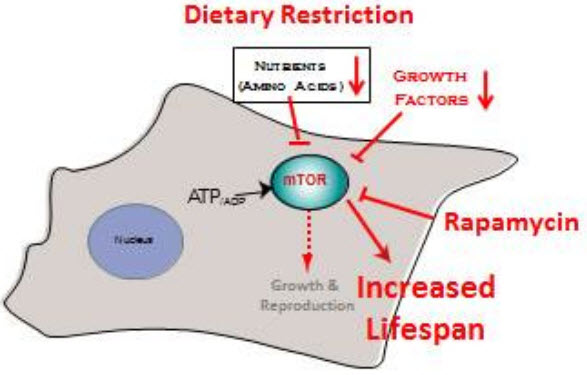[+]

This graphic outlines how rapamycin can mimic the effects of dietary restriction (credit: Oregon State University)
New research at the Linus Pauling Institute at Oregon State University suggests a fix for serious side effects of rapamycin*, a drug that appears to mimic the ability of dietary restriction to slow the aging process.
Laboratory mice that have received rapamycin have reduced the age-dependent decline in spontaneous activity, demonstrated more fitness, improved cognition and cardiovascular health, had less cancer, and lived substantially longer than mice fed a normal diet.
However, rapamycin has some drawbacks, including an increase in insulin resistance that could set the stage for diabetes, observed in both humans and laboratory animals. The new findings, published in the Journals of Gerontology: Biological Sciences, help to explain why that happens, and what could be done to address it./.../
No comments:
Post a Comment